Condensing vs Non Condensing Tankless Water Heaters: What are the Differences?
Parkville-area omeowners often have two choices with tankless water heaters: condensing and non-condensing models. Both options come with their own set of advantages, making it crucial to grasp the disparities between them prior to making a decision. This informative piece aims to present a thorough comparison of condensing and non-condensing tankless water heaters, empowering readers to select the heater that perfectly matches their individual living space and needs.

What is a tankless water heater and how does it work?
Water heaters can be classified into two primary types: conventional models with storage tanks and tankless designs. Conventional water heaters store a significant volume of water in a tank and maintain a constant temperature. On the other hand, tankless water heaters heat water instantly as it passes through a heat exchanger. This on-demand heating method eliminates the necessity for a storage tank, resulting in space and energy savings.

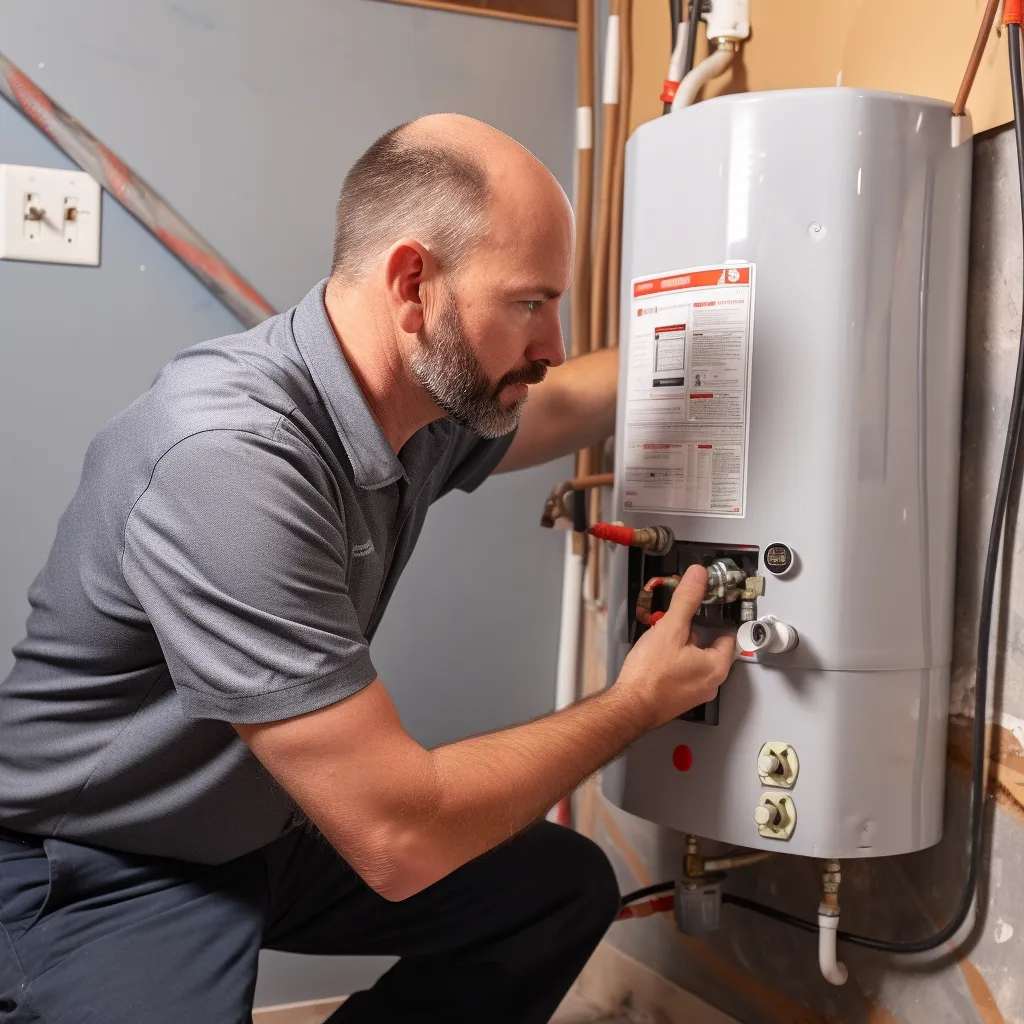
What is a condensing tankless water heater?
The condensing tankless water heater is a superior and efficient upgrade to the standard tankless water heater. It captures and recycles waste heat, efficiently heating the incoming water. This maximizes efficiency, saves energy, and lowers your energy bill. Additionally, it reduces energy consumption, making it environmentally friendly. Choose the condensing tankless water heater for cost savings and eco-conscious living.

What are the differences: condensing vs non condensing tankless water heaters
Tankless water heaters are a top-notch option if homeowners want to reduce energy costs. However, it's crucial to grasp the disparity between condensing and non-condensing models for optimal decision-making. The primary contrast lies in their approach to exhaust gases. Non-condensing models emit these gases into the atmosphere, whereas condensing models cool them down to the point of condensation into water vapor, which is then expelled. This innovative process significantly enhances the energy efficiency and overall effectiveness of condensing models compared to their non-condensing counterparts. Despite potentially higher initial costs, condensing models can deliver substantial long-term savings by curtailing energy expenses.
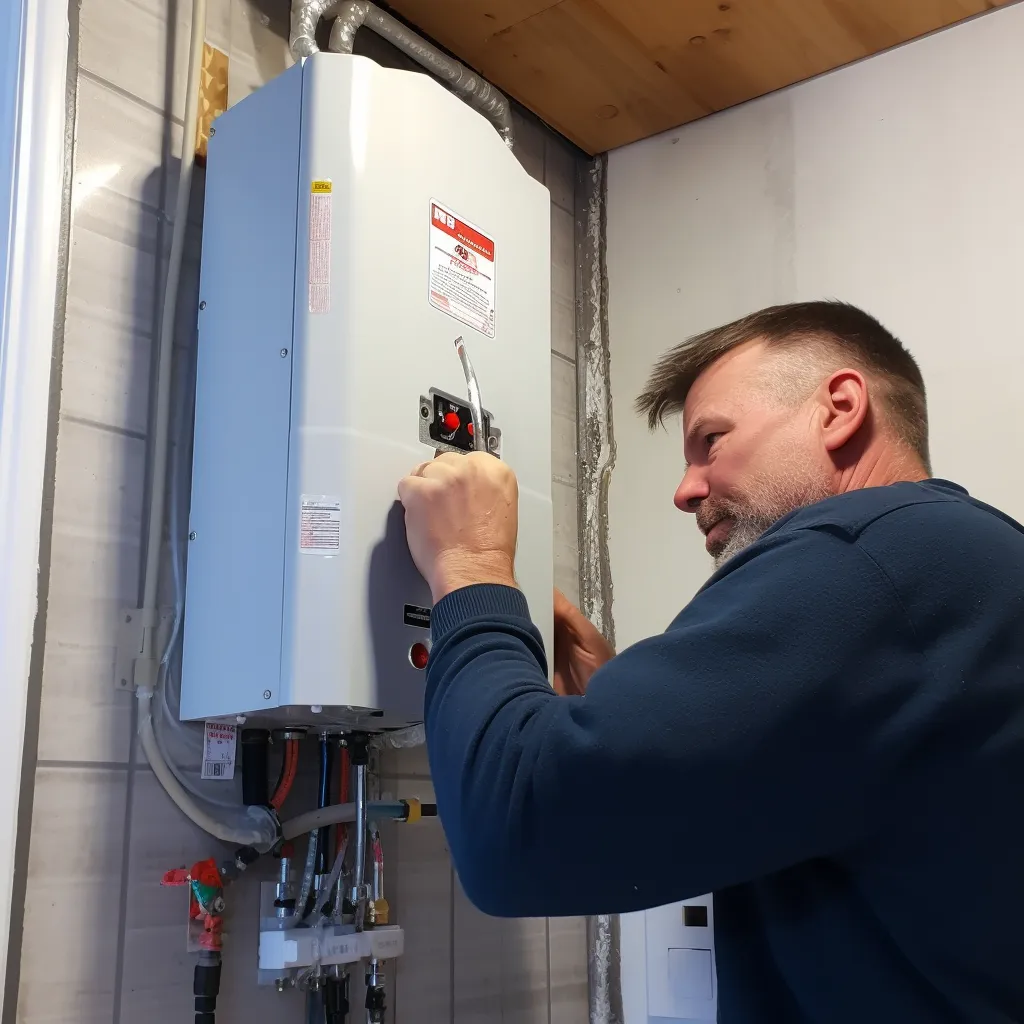
What are the benefits
of a condensing tankless water heater?
Condensing tankless water heaters offer multiple advantages over non-condensing models:
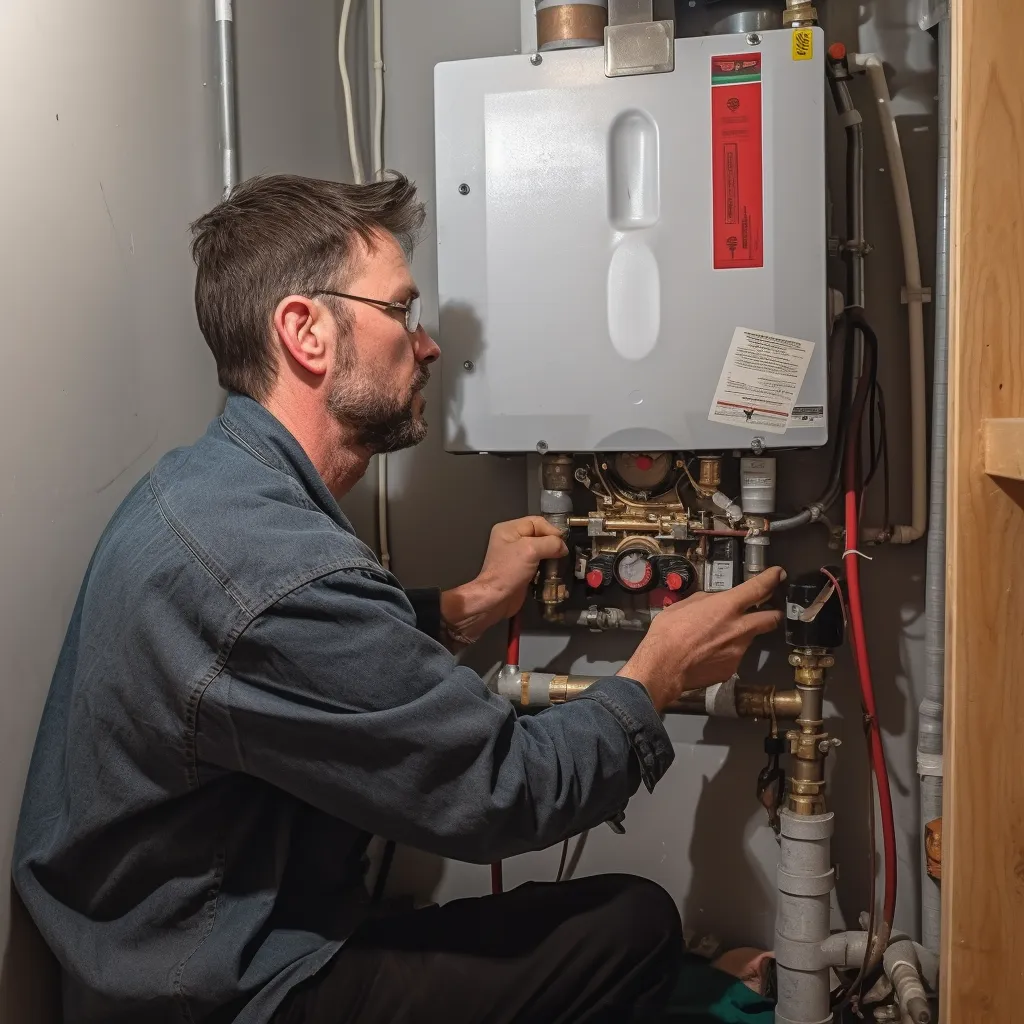
They are highly efficient, leading to cost savings on utility bills by extracting more energy from the fuel source.
They are eco-friendly, emitting fewer greenhouse gases and contributing to a greener home.
With a simplified design and fewer components, condensing water heaters have a longer lifespan, providing reliable hot water for an extended period.
What are the disadvantages
of a condensing tankless water heater?
The drawbacks of condensing tankless water heaters:

While condensing water heater models tend to be more expensive than non-condensing ones, it's crucial to weigh this upfront cost against the potential long-term savings in energy efficiency and utility bills.
It's important to keep in mind that condensing models may necessitate more maintenance and have a higher level of installation complexity due to the additional needs of venting and drainage systems.


Are condensing tankless water heaters energy-efficient?
Condensing tankless water heaters are an intelligent and eco-friendly solution for water heating, offering high efficiency of up to 96%. They efficiently capture and utilize lost heat from the combustion process, resulting in energy conservation. This saves significant costs over time by eliminating wasteful heating of excess water.
These water heaters operate on-demand, meaning they only heat water as needed. This not only reduces expenses but also minimizes environmental impact by avoiding unnecessary energy consumption.
By selecting a condensing tankless water heater, homeowners can benefit from efficient water heating, enjoy substantial cost savings, and contribute to a greener and more sustainable environment.
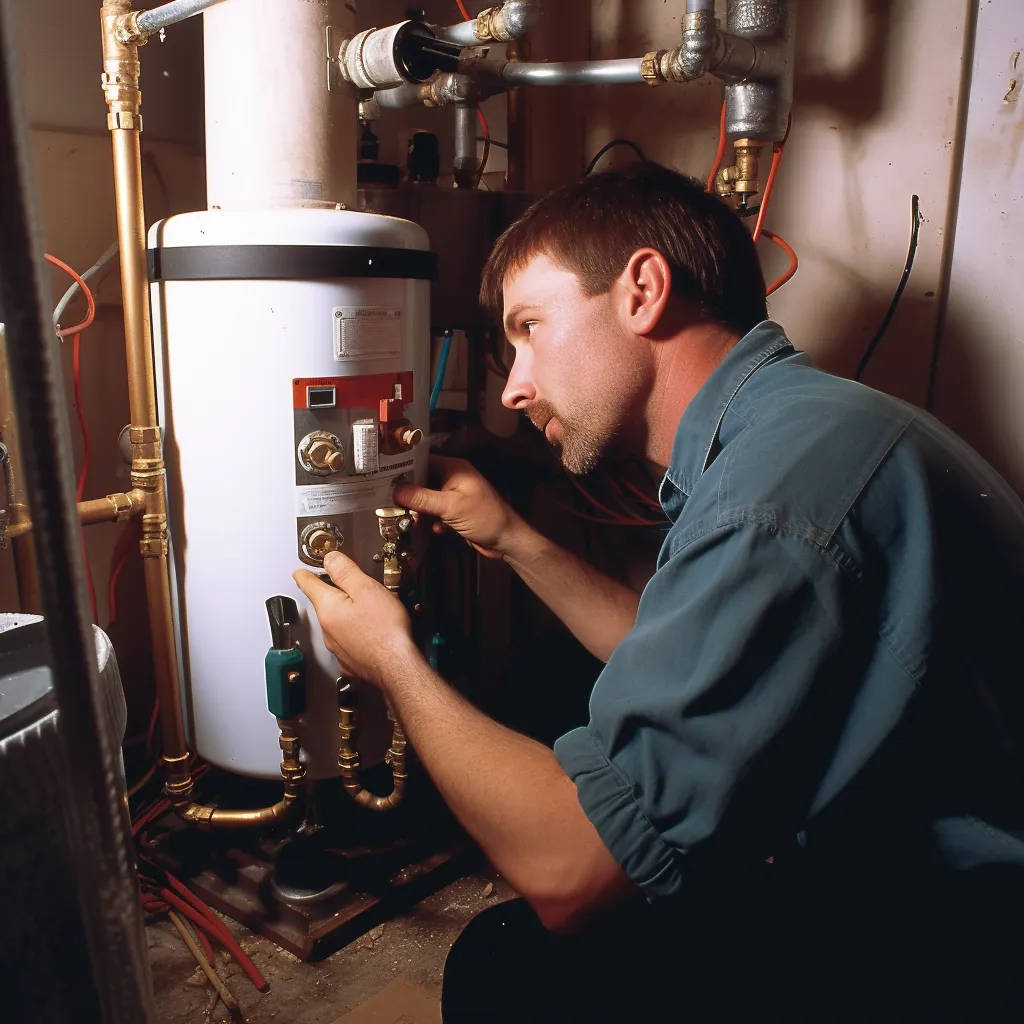
Are non condensing tankless water heaters energy-efficient?
Non-condensing tankless water heaters offer a sustainable and cost-effective solution for individuals who value both environmental consciousness and budget considerations in their water heating choices. While they may not match the energy efficiency of condensing models, they do deliver significant reductions in energy consumption and expenses when compared to conventional tank water heaters.
Despite not harnessing and utilizing waste heat like their condensing counterparts, non-condensing tankless water heaters still present an efficient and environmentally friendly option compared to traditional water heaters. These systems outperform tank-based setups by offering enhanced energy efficiency and considerable cost savings, making them an attractive selection for numerous households.
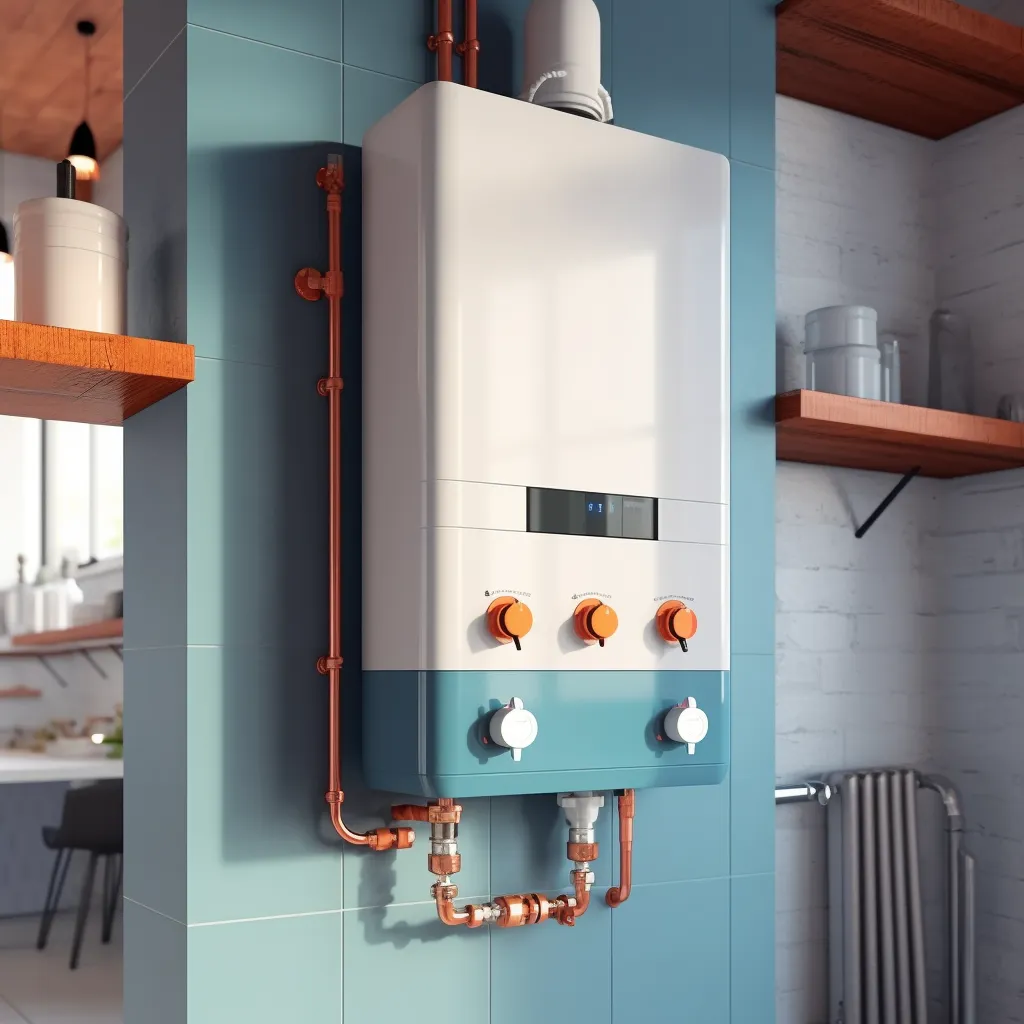
What is the cost to buy and install a condensing tankless water heater?
Condensing tankless water heaters offer significant energy savings and increased efficiency, but it's crucial to consider overall costs. Factors like home size, specific model, and brand influence the price. Installation complexity is also important.
To make an informed decision and find the best option, consulting a trusted professional is recommended. Their expertise provides valuable guidance for choosing the right condensing tankless water heater for your home.
While the initial cost may be higher, many homeowners discover that the long-term benefits outweigh the investment. Energy savings and improved efficiency lead to substantial cost savings over time, making condensing tankless water heaters a worthwhile choice for efficient and sustainable water heating.
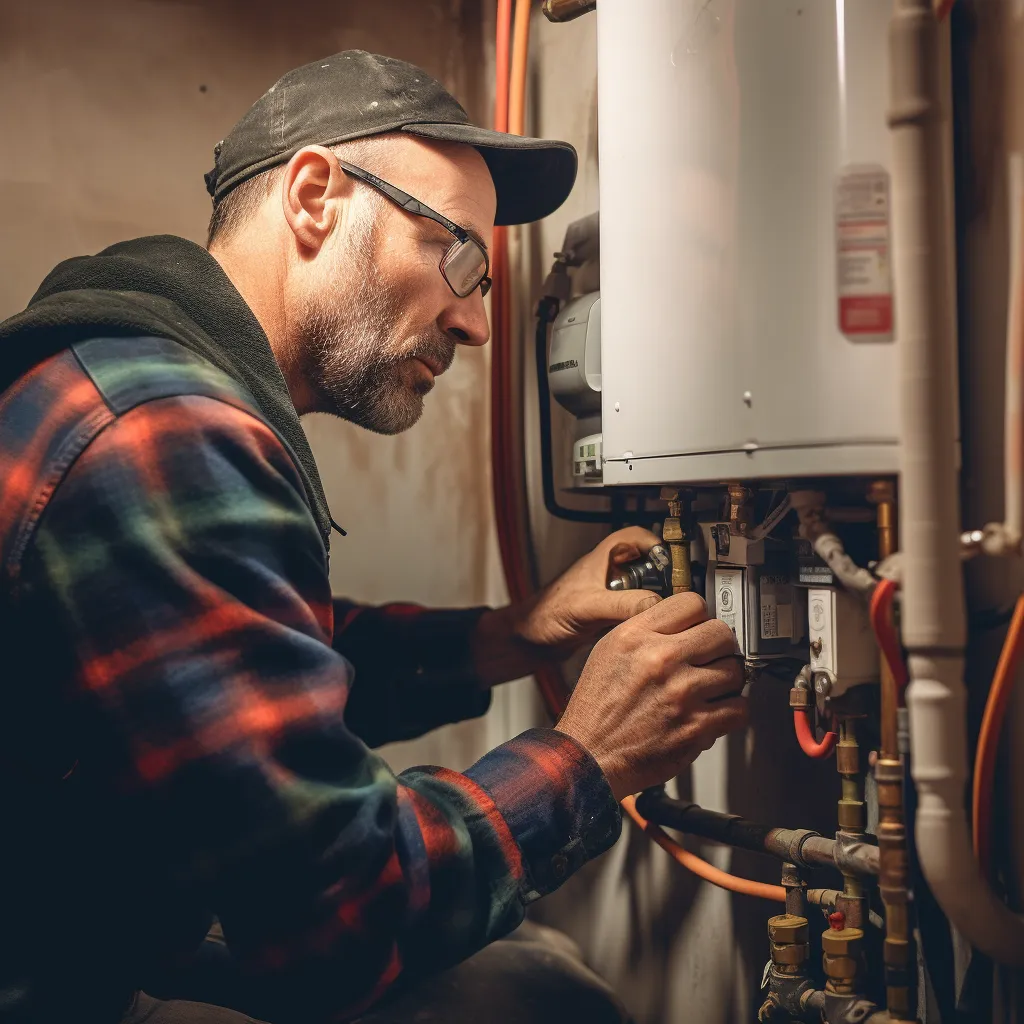
What is the cost to buy and install a non condensing tankless water heater?
Non-condensing tankless water heaters, offered by well-known brands and available in multiple sizes, generally range in price from $1,000 to $3,000. While they may require an upfront investment, these units deliver exceptional durability, ensuring a consistent supply of hot water for an impressive twenty years. In addition to their reliable performance, these tankless water heaters boast a sleek and compact design, allowing you to maximize space and minimize clutter within your household.
Condensing tankless water heaters maintenance requirements?
Here are some of the maintenance requirements for condensing tankless water heaters:
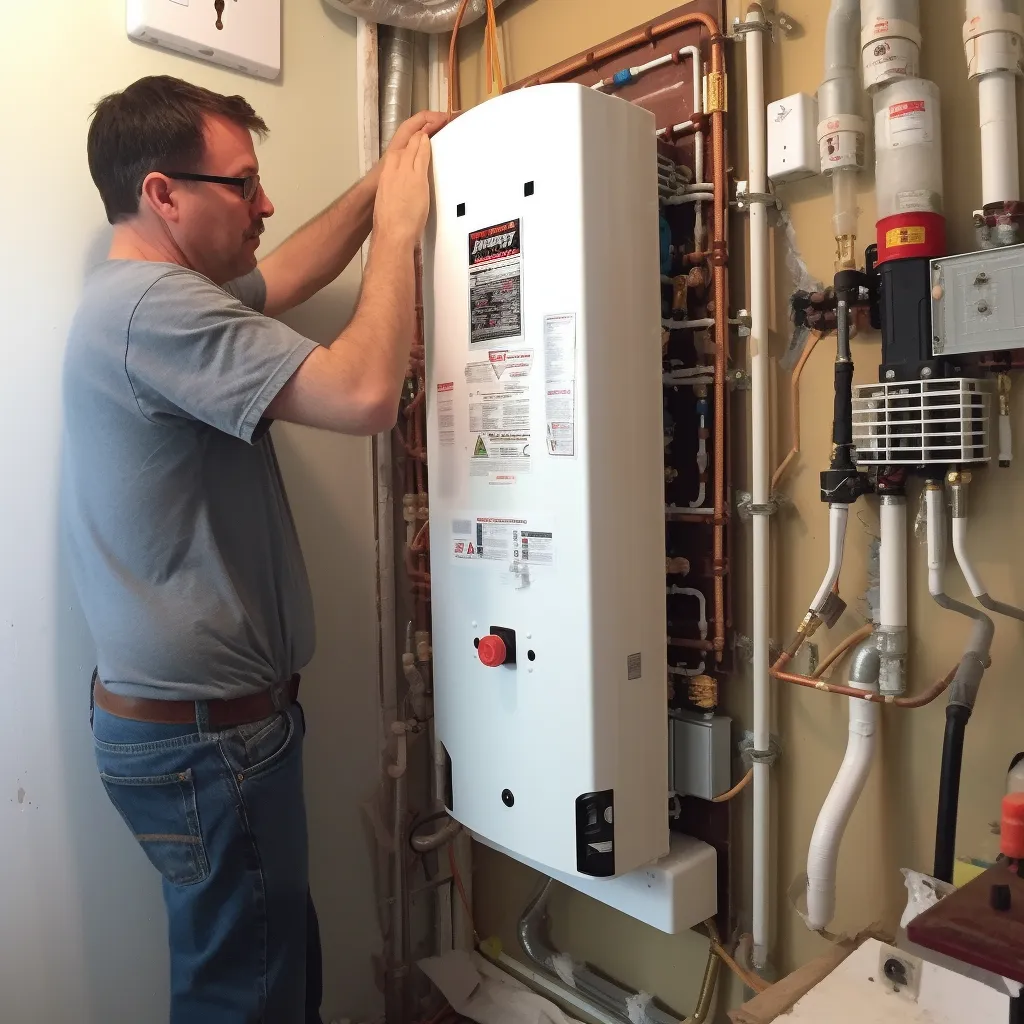
Leak Verification: Regularly check for any leaks or potential issues to prevent water damage and address them promptly.
Heat Exchanger and Burner Cleaning: Clean the heat exchanger and burner to remove any dirt, debris, or mineral buildup that can hinder the heater's efficiency.
Filter Inspection and Replacement: Inspect the filters regularly and replace them as needed to maintain the heater's efficiency and prevent clogging.
Water Pressure and Temperature Testing: Test the water pressure and temperature periodically to ensure the heater is functioning optimally and delivering the desired hot water experience.
Venting System Maintenance: Ensure the venting system is clear of any debris or obstructions, as proper ventilation is crucial for safe and efficient operation.
Regular System Flushing: Flush the system regularly to eliminate sediment buildup, which can affect the heater's performance and lifespan.
Air Filter Cleanliness Check: Check the cleanliness of the air filter and clean or replace it if necessary to maintain proper airflow and prevent dust or debris from entering the system.
Regular maintenance plays a vital role in maintaining the performance and longevity of tankless water heaters. It is essential to prevent potential problems like increased energy expenses, reduced efficiency, or even damage. To keep your water heater in excellent condition, it is advisable to arrange regular professional maintenance checks. By being proactive about maintenance, you can save valuable time and money in the future while ensuring that your water heater functions optimally and effectively.

What are the maintenance requirements
for non condensing tankless water heaters?
To ensure optimal performance and prevent potential issues, it is crucial to prioritize regular maintenance for both non-condensing and condensing tankless water heaters. By adhering to a few key maintenance practices, you can keep your unit running efficiently.
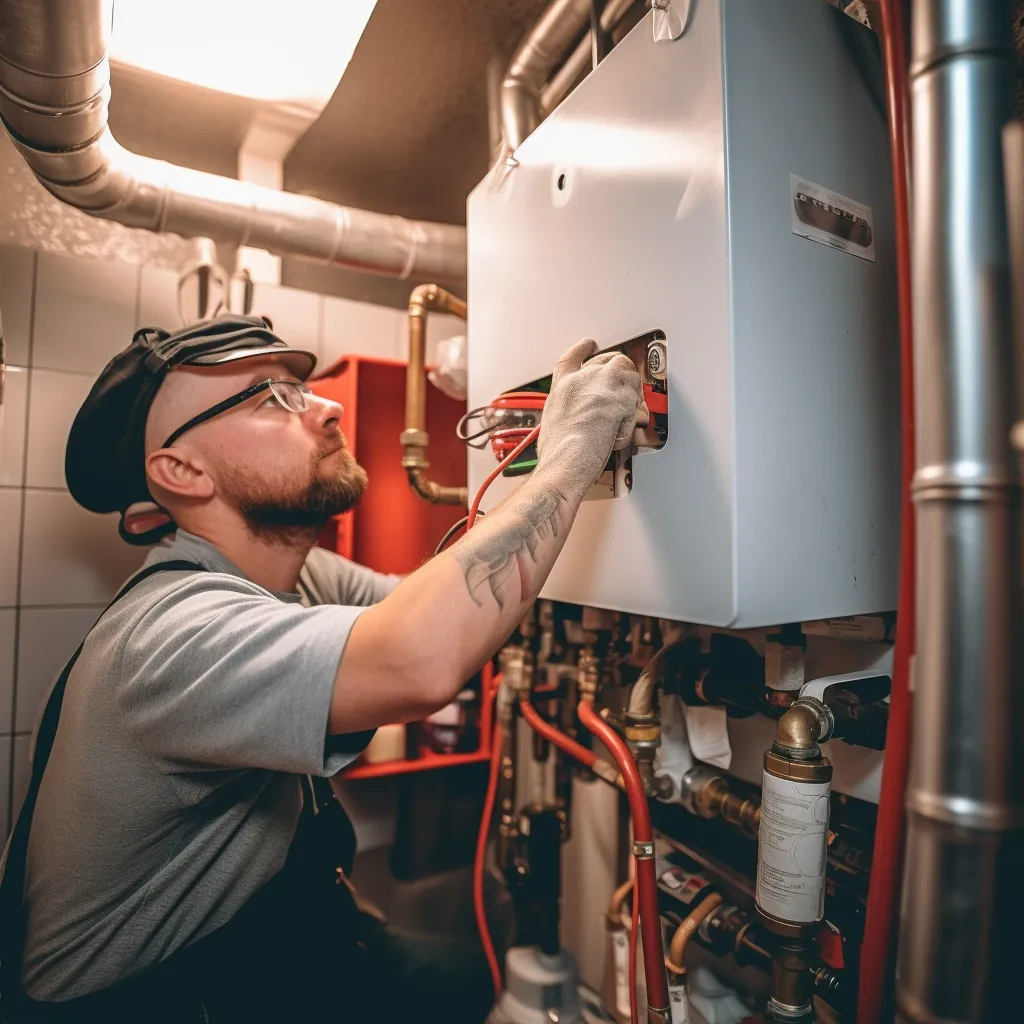
Flushing the system on a regular basis is essential to eliminate mineral buildup and debris that may hinder the performance of your water heater.
Frequent monitoring and replacement of the unit filters are necessary to maintain proper flow and prevent clogging, ensuring a steady supply of hot water.
To optimize efficiency and heat transfer, it is important to clean the heat exchanger and burner periodically, removing any accumulated residue or buildup.
Regular inspections should be conducted to identify any malfunctions or leaks promptly. Addressing these issues in a timely manner can prevent further damage and ensure the longevity of your water heater.
Regularly verifying the water pressure and temperature is recommended to ensure they fall within the recommended range. This ensures optimal performance and prevents any adverse effects on the unit.
To maintain proper airflow and prevent ventilation issues, it is important to keep the vents free from debris. This simple step helps to ensure efficient operation and prevents potential problems.
What to think about when choosing between a
non condensing vs condensing tankless water heater
If you're deciding between a non-condensing and a condensing tankless water heater, there are several important factors to consider.
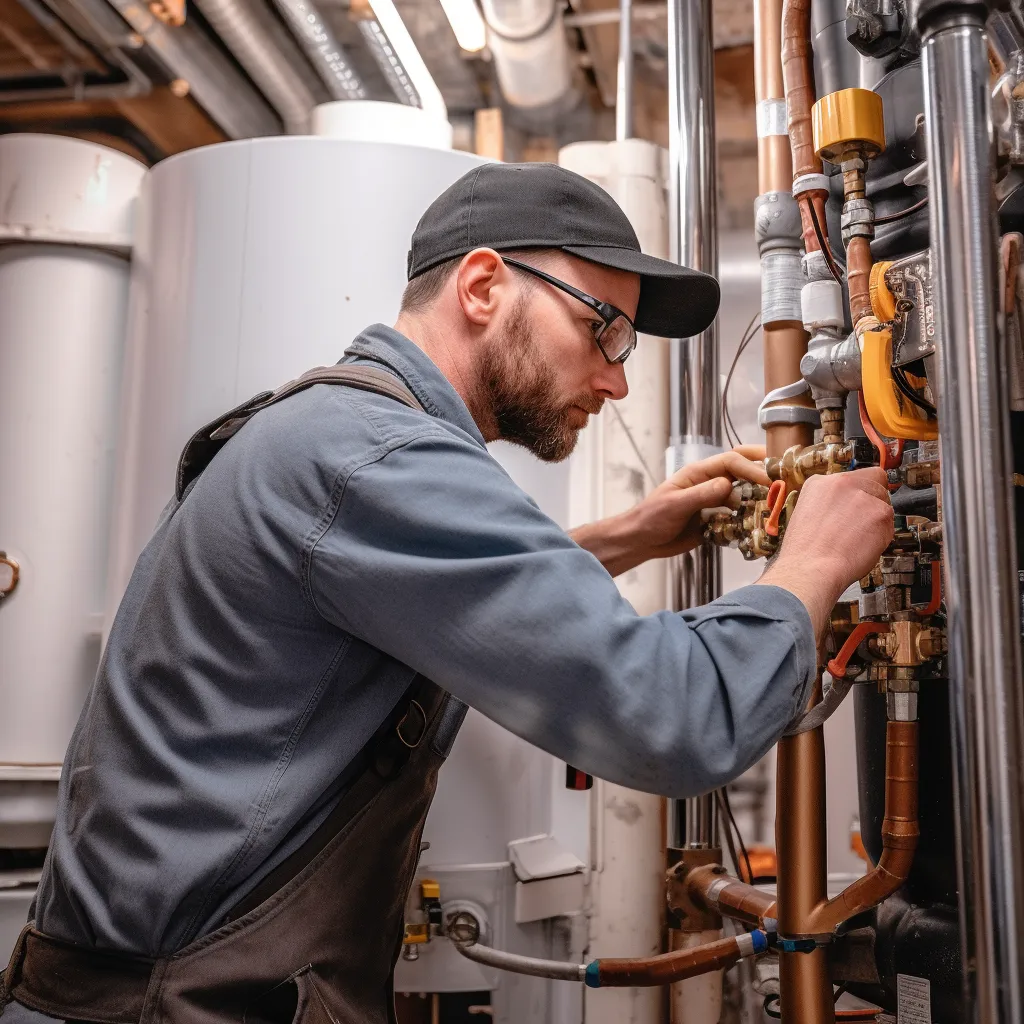
Non-condensing water heaters tend to be bulkier in size, making them less suitable for limited spaces. In such cases, opting for a condensing water heater would be a more viable choice.
Installation complexity is another aspect to keep in mind. Non-condensing units require a more intricate installation process, which can lead to higher overall costs. On the other hand, non-condensing units offer a simpler and more budget-friendly installation option.
Maintenance requirements also differ between non-condensing and condensing tankless water heaters. Non-condensing models generally demand more frequent upkeep compared to their condensing counterparts. It's essential to take your maintenance preferences into account when making a decision.
Energy efficiency is a crucial consideration as well. Condensing units have the advantage of consuming less energy, resulting in long-term savings on utility bills. If energy efficiency is a priority for you, it is advisable to opt for a condensing water heater.

Researching condensing vs non condensing tankless water heaters
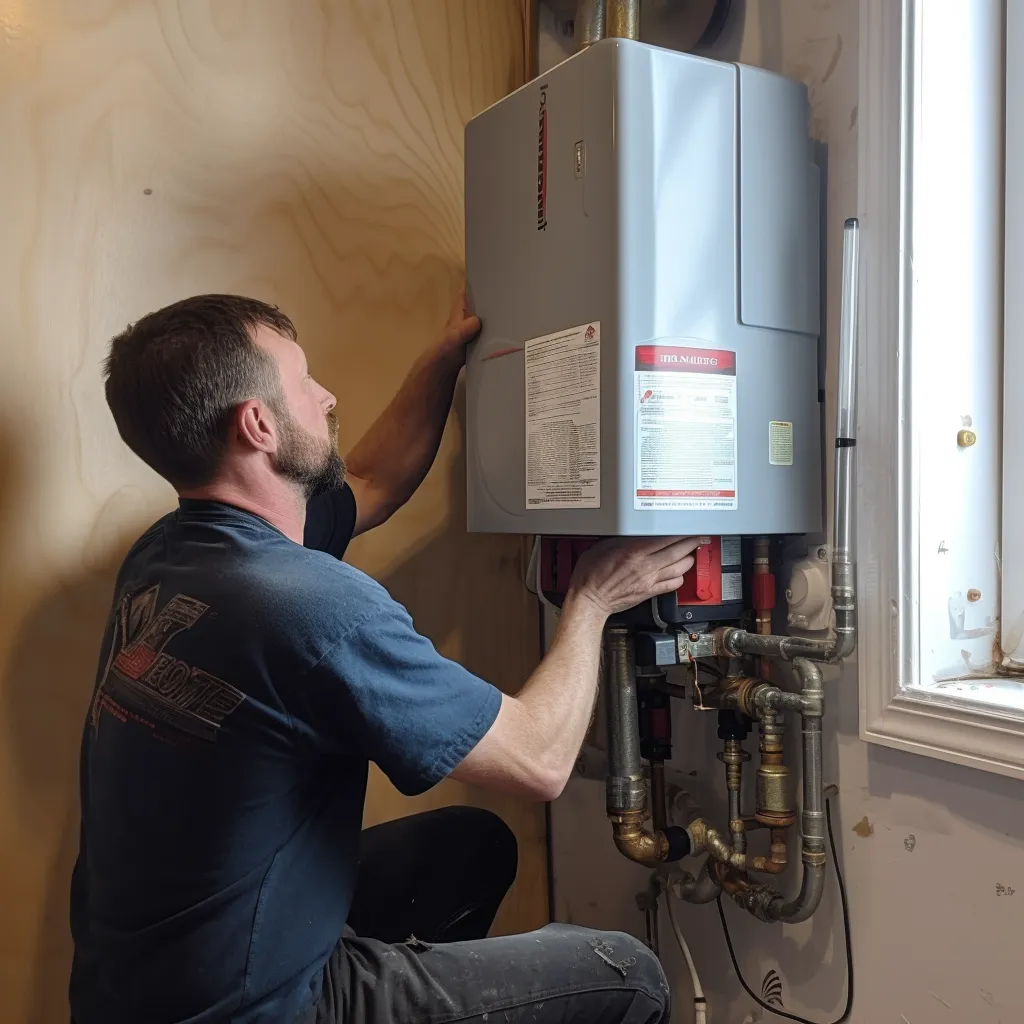
When searching for the right tankless water heater for your home, it's crucial to consider the pros and cons of different types available. One important factor to weigh is whether to opt for a condensing or non-condensing unit. While non-condensing units may seem more budget-friendly at first, it's essential to acknowledge that they can waste energy and require more maintenance. On the other hand, condensing tankless water heaters offer greater cost-effectiveness and can lead to lower utility bills. By taking the time to compare your options and selecting the ideal water heater type, you can enjoy a constant supply of hot water while also saving on energy costs.
It's important to note that choosing the right tankless water heater is a personal decision that requires consultation with a licensed professional who has a thorough understanding of your home's specific needs. With their expertise, they can offer valuable guidance to ensure you make an informed choice that precisely matches your home's requirements.
Contact Us
GET IN FULL TOUCH
PHONE: (410) 883-5584
EMAIL:
william@waterheaterparkville.com
Strong Plumbing Parkville
Parkville, MD 21234
